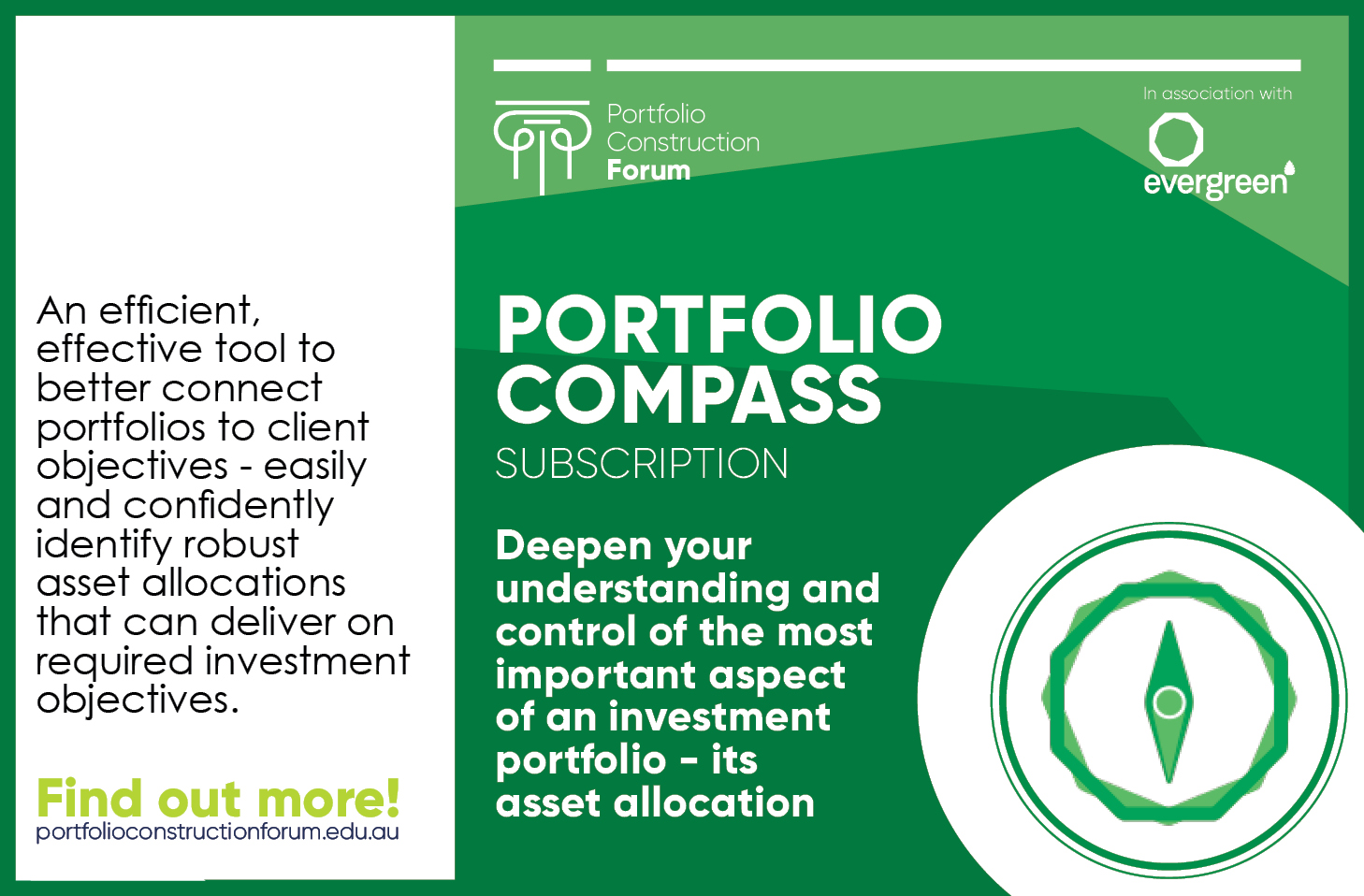The Pain Report - video presentations
presented by Portfolio Construction Forum
Jonathan Pain, Author and Publisher of The Pain Report, is a regular key note presenter at Portfolio Construction Forum’s continuing education programs. Over the years, he has debuted new investment theses and challenged delegates about how to build better quality investor portfolios. For more information about The Pain Report and to subscribe, go to The Pain Report.
History is echoing – this is a year to be tactical (21 Feb 2024)
With heightened global geopolitical risks, reduced fiscal support from governments, a deflating Chinese property bubble, and an ongoing US commercial real estate crisis, 2024 is a year for investors to be nimble and tactical.
In every way, it is different this time (22 Feb 2023)
As the clouds of Volatility, Uncertainty, Complexity and Ambiguity continue to swirl, the silver lining is that we are on the road back to normal monetary policy settings, from abnormal, and a return to more rational asset prices. But we must be patient.
It’s time to batten down the hatches! (18 Aug 2022)
It’s time to batten down the hatches as we brace for the perfect storm. Led by the Fed, the world’s major central banks kept rates way too low for way too long, and now they will take rates up to a level which will deliver recessions in each of their economies. Yes, they will deliver on their mission to bring inflation back down, but the cost will be recession.
The stagflation threat is growing (23 May 2022)
Since I addressed Markets Summit 2022 back on 23 February, arguing “The days of abnormal monetary policy are over”, Russia’s invasion of Ukraine has triggered a food and energy crisis while declining consumer sentiment and Chinese lockdowns provide headwinds to growth.
The days of abnormal monetary policy are over (23 February 2022)
With US inflation at a 40-year high, and the housing and labour markets red hot, the US Fed has finally taken a distinct and meaningful step forward on the path back to normal. Investors need to accept that the days of abnormal monetary policy are over.
Be optimistic, but beware – big risks lie ahead (03 March 2021)
The herculean tug of war between stronger economic growth and higher bond yields will be the defining battleground of 2021 and will be accompanied by violent and rapid-fire recalibrations of relative valuations.
The black swan VUCA has arrived (18 February 2020)
Coronavirus represents a Black Swan event, the economic shock of which to China will reverberate around the world, thereby amplifying and exposing global economic weaknesses.
The world has too much debt (19 February 2019)
Two of the defining characteristics of the global investment landscape over the last 30 years are being reversed - globalisation (by economic nationalism) and finalisation (as we’ve reached peak debt).
Changing gears? Panel 1 (13 February 2018)
Are we in for a global inflation shock leading to significantly higher bond yields and a recalibration of relative valuations? Are we close to a one-in-a-generation change in the world’s monetary order? Should we be switching gear with portfolios?..
Brace yourself for a global inflation shock (13 February 2018)
A combination of factors is set to generate an unexpected inflationary shock to the financial markets…
The winds have changed (14 February 2017)
The tectonic plates of the political and economic landscape are rupturing. Brace yourselves for a wild and entertaining ride…
Is it deja-vu 2008? (16 February 2016)
Many people have written to me in recent months and asked whether I believe this is yet another 2008. In my view, there are many significant differences. But I’m afraid we’re set for some extreme volatility in the months, if not the years, ahead.
China is a nation at the crossroads (20 August 2015)
The reformist credibility of the Chinese government has been severely damaged by its market intervention, which could be very serious for the ongoing transformation of the world’s most populous nation.
Asset allocation will dominate portfolio returns in the years ahead (19 May 2015)
As we all brace for lift-off in the key US Federal funds rate, a robust, top-down macro perspective will be even more critical to the success of portfolios than ever.
The global economy is firing on all cylinders (19 May 2015)
The outlook for the global economy is unambiguously positive. We have reformist governments in the world’s most populous nations and the developed world has finally recovered from the WFC (Western Financial Crisis). At long last, all the regional economic cylinders are firing in unison and secular stagnation is yesterday’s story.
Running out of patience? (24 March 2015)
I remain much more positive than the consensus on the global economic outlook. I continue to be overweight equities and underweight bonds.
All things considered - the outlook for 2015 (04 February 2015)
2015 has certainly got off to an eventful start - we’ve seen dramatic changes and its only five weeks into the year. I want to address where I see markets going in 2015. A couple of things really stand out.
What a wonderful world - around the world in 60 minutes (20 May 2014)
The majority of the world will see an improvement in economic growth this year - and, equities remain the most attractive asset class. But, they will see much greater volatility and need a more nimble approach.
QE and navigating the Great Escape (18 February 2014)
Most of the world will see an improvement in economic growth this year. Equities are by far the most attractive asset class - but they will be much more volatile.
An extraordinary year (06 December 2013)
My bottom line for 2014 is that investors should be overweight global equities and underweight bonds. My biggest call is that China’s stockmarket could be the best performing.
It really is different this time (10 September 2013)
I’m quite used to being alone and against the consensus. I believe the next decade is going to see the strongest level of global economic growth anyone today has ever seen.
Buckle up (12 June 2013)
I continue to be positive on the broader global economic backdrop - but buckle up and prepare for some turbulence over the next few months.
Climbing the Mother of all Walls - Stay Positive (21 May 2013)
(Opening keynote at PortfolioConstruction Forum Symposium 2013)
The adage is that bull markets climb a wall of worry. Despite having much to worry about - a Eurozone in recession, a listless US recovery, Japan’s QE, slowing China growth, North Korea, etc - the Dow and the more important S&P 500 reached new, all-time highs recently. Where to from here?
Climbing the Mother of all Walls (16 April 2013)
We’re seeing a significant correction in global equity markets and commodity markets including a staggering decline in gold. What does this mean for portfolios?
Climbing a wall of worry (26 March 2013)
Despite the Cypriot tragedy, I believe the next few years will see stronger global GDP numbers than in a very long time.
Fiscal lemmings: 2013 and beyond (7 December 2012)
Going into 2013, I’m significantly more positive about the outlook for US growth while I think China will continue to to grow at around 7%, which will no doubt disappoint those who subscribe to the theory of hard landing for China.
Africa, the new old continent (23 August 2012)
(Featuring a special introduction from Archbishop Desmond Tutu)
In his closing keynote at the 2012 PortfolioConstruction Forum Conference, Jonathan spoke about Africa, the continent where he was born and grew up and about which he remains very passionate. Africa’s economies are amongst the fastest growing in the world, with technological change sweeping across the continent. Is Africa the next China?
The political gale (01 June 2012)
There are really only two words to discuss - Greece and Spain - and the implications for Australian cash rates, bond yields and equity markets - and, of course, portfolios.
The game changer for financial markets (09 February 2012)
The extraordinary announcement by the ECB on 21 December that it would lend 489 billion to the European banks was very much the game changer that soothed financial markets - and, all in all, I feel quite a bit happier about what’s happening in Europe. But, the drum beat of war in the Persian Gulf is probably the most alarming in a very long time.
The Arab Spring (25 August 2011)
In this closing keynote Critical Issues Forum session at the 2011 PortfolioConstruction Forum Conference, Jonathan Pain looks at the where the Middle East region is heading in the years to come, and the implications for investment markets…
Historic times (16 August 2011)
This month has brought some of the most turbulent times in the history of investment markets. What does it mean for those managing investor portfolios?
Italy joins the submerging nations (19 July 2011)
It’s clear that Italy must now be included in the group of submerging economies - and that portfolios should become more cautious and defensive.
Alice in wonderland meets the new reality (August 2010)
Jonathan joined us for the PortfolioConstruction Conference 2010 to introduce delegates to his (then) new thesis: that the world is now divided between those nations that are submerging and those that are emerging, with the critical question being: “Can the emerging world can spend enough to save the submerging world or will we need an Intergalactic Monetary Fund?”
The economy in the new reality (August 2009)
Our opening keynote session at the 2009 PortfolioConstruction Conference, Jonathan and others debated the likely shape of the global economic recovery, and the implications for markets and portfolios.







